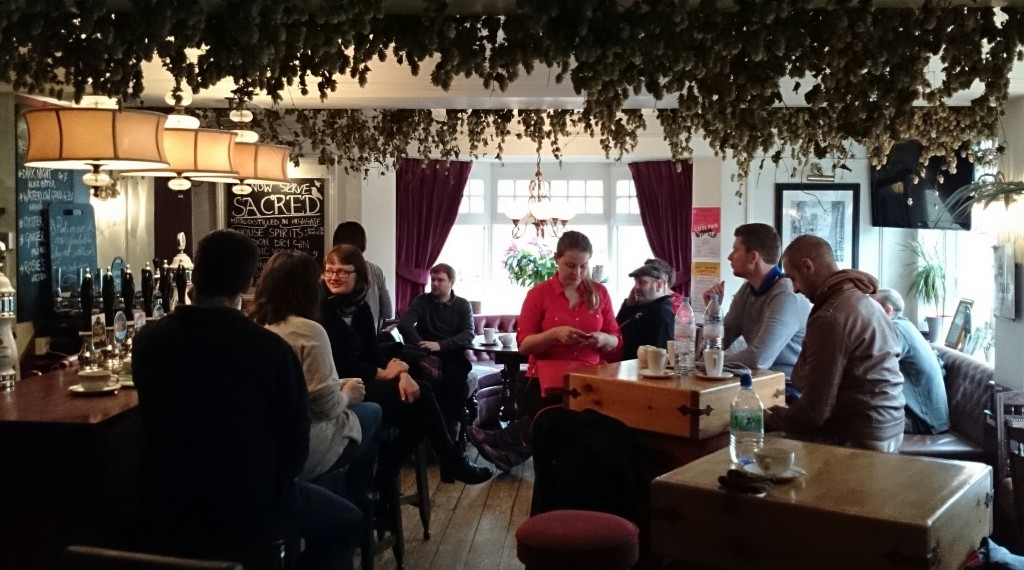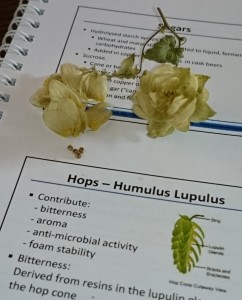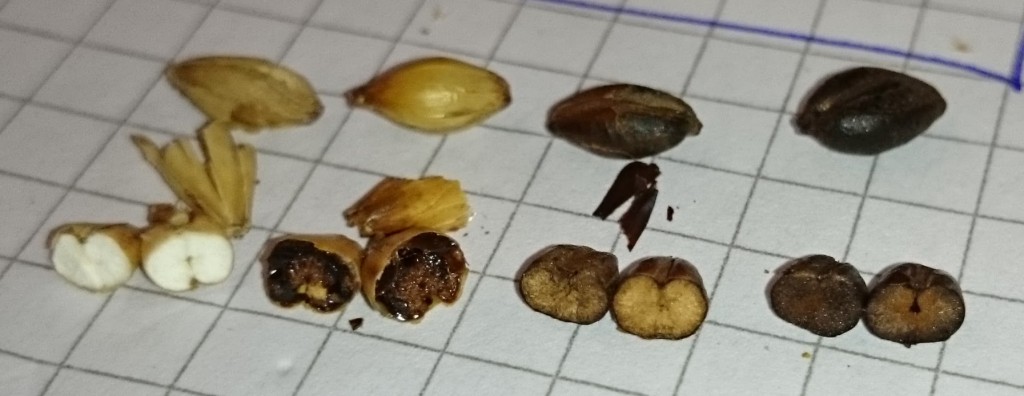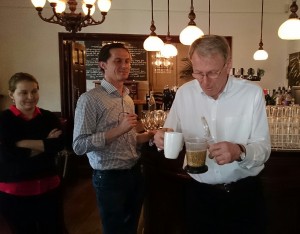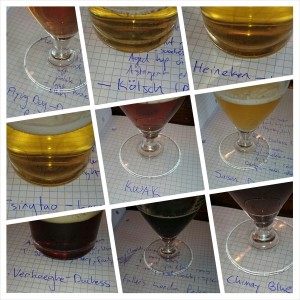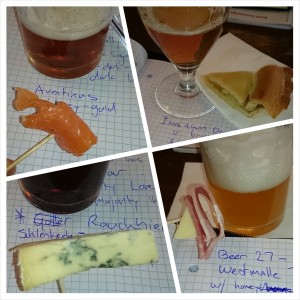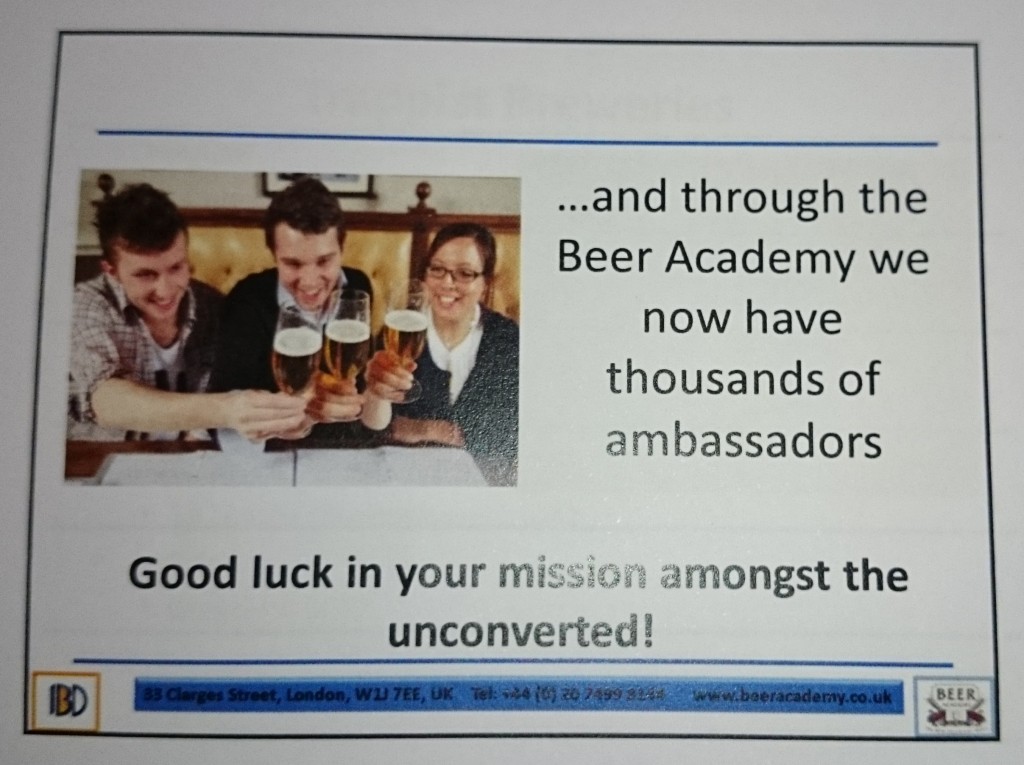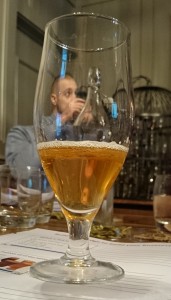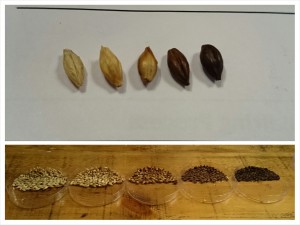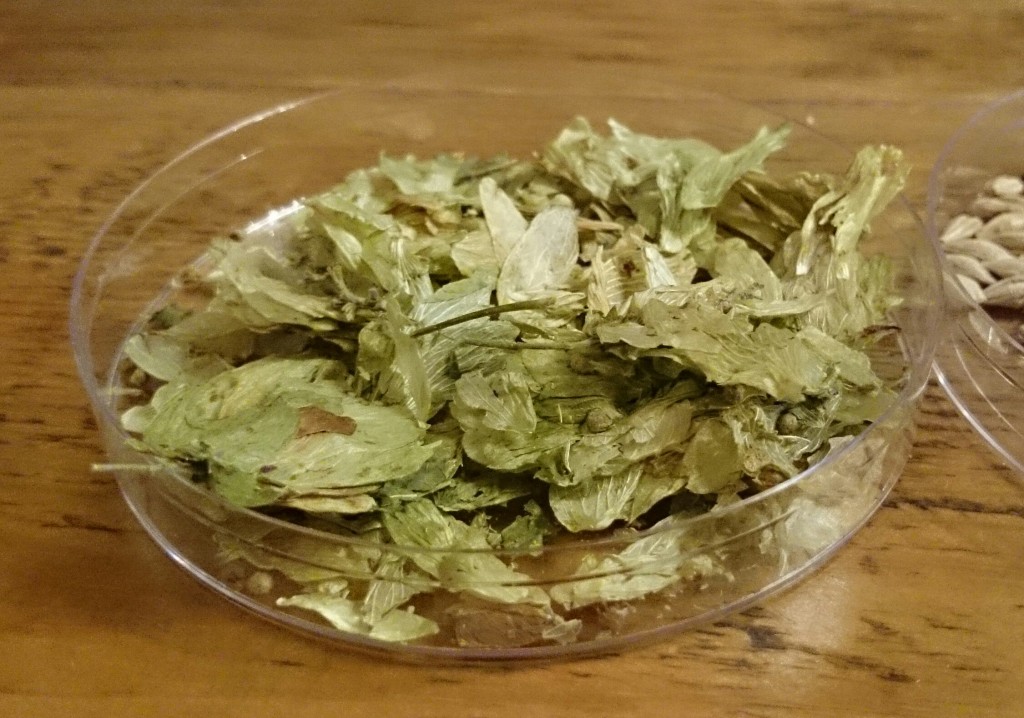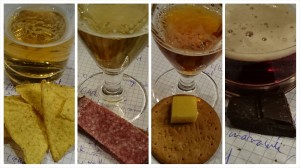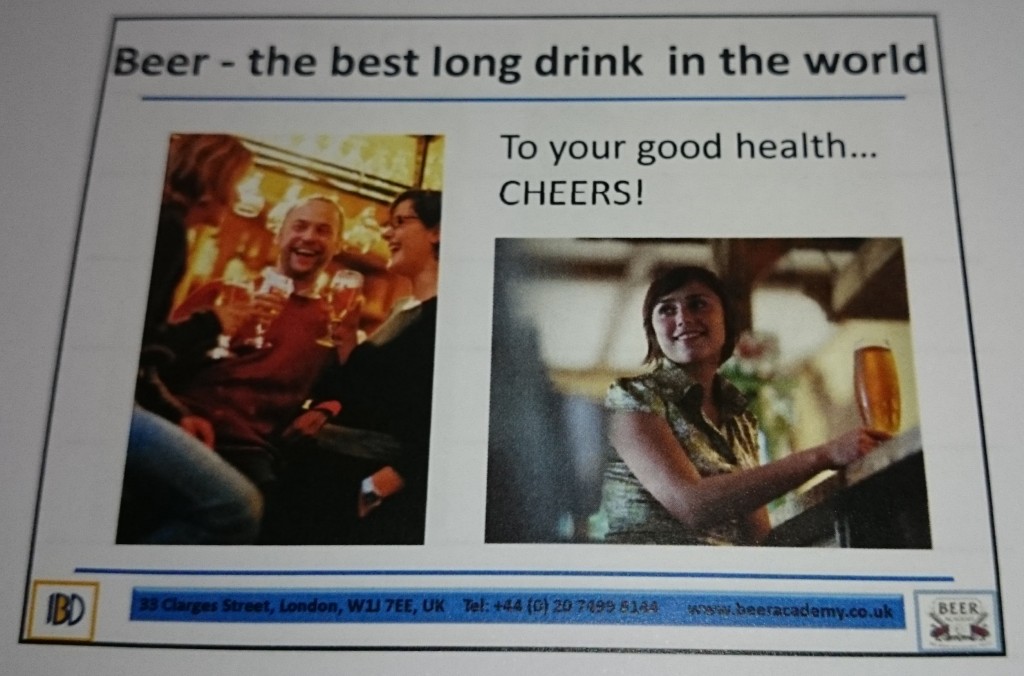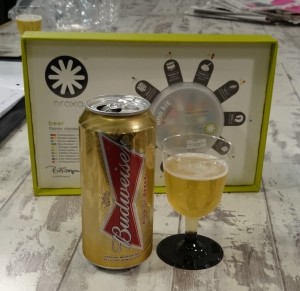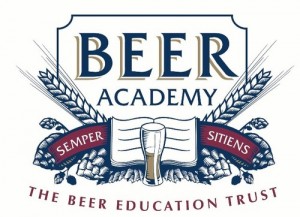 The second day of the Beer Academy “Advanced Course” is intended to extend on the material in the Day 1 “Foundation Course”. You can do just the second day as an addition to having already done the Foundation Course in fact, thus spreading out the cost over time (I’m not sure what the separate prices are). We had one additional chap join us for just the second day, he’d done the Foundation Course a year ago and came back for more! He’s a beer enthusiast based near Birmingham, currently working for SpecSavers but with an eye to getting into the beer scene.
The second day of the Beer Academy “Advanced Course” is intended to extend on the material in the Day 1 “Foundation Course”. You can do just the second day as an addition to having already done the Foundation Course in fact, thus spreading out the cost over time (I’m not sure what the separate prices are). We had one additional chap join us for just the second day, he’d done the Foundation Course a year ago and came back for more! He’s a beer enthusiast based near Birmingham, currently working for SpecSavers but with an eye to getting into the beer scene.
I felt the second day flowed more smoothly than the first – perhaps mainly because everyone was more comfortable as we’d had a chance to get to know each other now, Derek included. It also helped that Derek’s slide order did follow the syllabus order fairly closely.
So – the content? As advertised: same areas but adding depth to what we had covered in Day 1. I actually learnt much more than on the first day – albeit mainly through a combination of Derek’s value-add and also through others in the class with good experience in areas where my own is thin. In some cases the syllabus content led into this – for example decoction is specifically covered and now I understand the whys and hows of it. (Well… I think so.)
We started off with brewing inputs and dove deep into water sources and water treatment. As a newbie homebrewer who hasn’t got into water treatment yet this was incredibly useful to me. Hopefully I retain enough of the info to ease my own future use of water treatment. Malting is also comprehensively examined – from the practical level of barley varieties and seasons through to the deeps of chemical composition, conversion, and flavour analysis. Adjuncts are neither missed nor dissed, their use and value to certain styles is part of the course. Flavourings and the history of their use gets a quick look-in, with more specific coverage later when we examine styles. All of this comes with a richness of added historic notes from Derek, like the use of potato flour in brewing at Tolly Cobbold! What am I missing? … Hops! Not left out of course: again, much more technical coverage – acids, oils, and IBUs – and more about a range of specific varieties, uses, and different hop products used in brewing.
As previously mentioned the mashing process is covered – explaining the different enzymatic/chemical stages of the mash. This is well illustrated in the coverage of the decoction mash. Temperatures, fermentables, unfermentables… and from this logically onto yeast, history, strains, and styles of secondary fermentation. Sterilisation – pasteurisation and sterile filtration next. Here we learnt that where our Brazillian brewer used to work they sterile-filter AND tunnel-pasteurise. I never did get around to asking where it was she was working in Brazil.
By now, it being about midday, we start to explore tastes and styles. With a series of beers in hand of course! We run through a variety of taints again, more of a re-cap of Day 1 really. Then dive into further detail about flavour descriptors and systems for presenting them – i.e. Cyclops. The exploration of beer styles went wider and whilst I am at least casually acquainted with all styles from the drinking perspective I learnt more about their relationships and histories. Derek seems to be familiar with a vast spread of European brewing and had been to and met many great brewers and breweries… so again the value-add of his presence was significant.
The final set of beers we tasted included some basic food matches as well. Some working better than others – having degrees of both success and failure in the matching was a good touch (I don’t know how deliberate it was!) Pairing Innis & Gunn Original with Apple Pie was, for me, terrible. The majority were not keen on the pairing – however the vast majority gave the beer a firm “thumbs up”… so there you go. Tasted like lollywater to me. Derek led the matchings well – and has done beer and food pairing in the past, so it isn’t like they have just grabbed a master brewer who only knows the beer from the brewing end… he’s incredibly enthusiastic about beer and food pairing.
As with Day 1 we finished up with a fairly informal 20-question multi-choice exam. No great challenge. I’d liken the whole exam element to having done my “Life in the UK” test. Study some material and then do what is effectively a memory and comprehension test. I reiterate here that the Beer Academy puts this course forward as being about education, not examination. I expect anyone doing it is going to be there with a serious interest in learning, as was certainly the case on the course I attended. Just being there is a qualifying activity in my view.
All in all Day 2 had a lot of value in it for me – as both a homebrewer and drinker. I’d certainly recommend it to anyone with a keen interest in homebrew who is not already well versed in the finer details of full mash brewing. Although a more purpose-designed brewing course is probably more relevant, so it helps if you’re interested in the wider world of beer as well.
Everyone seemed to go away from the course happy for the experience. The majority of my fellow students dispersed quickly at the end, but those who stayed around were upbeat and happy with the experience. Even the proper brewers. We shared a couple of beers downstairs in the Bull and had a chat. Everyone has beery activities planned for the evening… ah, a proper beer crowd. We finished our beers and headed in our separate directions… Derek to the Wandsworth Beer Festival… others to different parts of London with must-see bars in mind… and me down the road to the Southampton Arms. A fantastic little pub and a pint of Magic Rock Rapture in the BEST condition I have ever found it – NBSS 5/5 material… beer… it’s wonderful.
This post, yesterday’s write-up of Day 1, and the previous introductory post all form a “log” of sorts. “Web Logging” as originally intended? The idea is to give a “live” overview of doing the Beer Academy “Advanced Course”. I’ve glossed over some bits, and obviously cannot cram much detail of two 09:30-16:30 days of learning into a reasonable number of words. I will write one final post on this topic which will be more of a rounded overview and review of the experience. Watch this space… well, not *this* space exactly… ah, you know what I mean.
